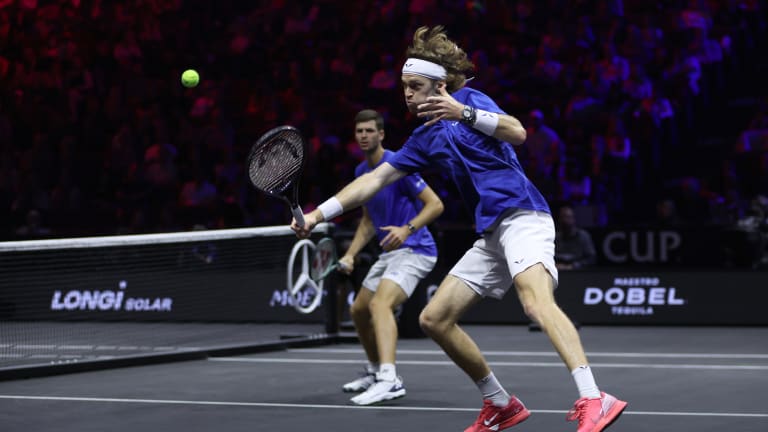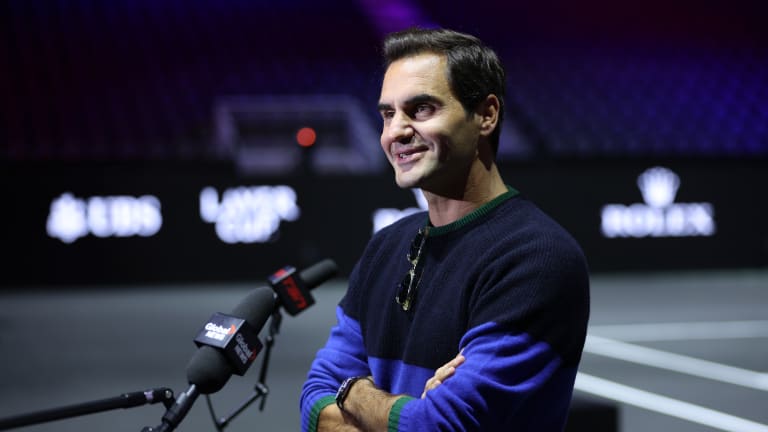Laver Cup
Captain Federer? Five thoughts on Laver Cup now, and in the future
By Sep 26, 2023Laver Cup
Laver Cup 2025: Where to Watch and How it Works
By Sep 18, 2025Laver Cup
Frances Tiafoe remains heartbeat of Team World with sixth Laver Cup appointment
By Aug 12, 2025Laver Cup
Tim Henman is joining the Laver Cup coaching staff and hopes to bring Jack Draper with him
By Mar 25, 2025Laver Cup
Laver Cup Berlin 2024: Alex de Minaur, Tommy Paul withdraw from Team World
By Sep 12, 2024Laver Cup
Laver Cup: Yannick Noah to succeed Bjorn Borg as Team Europe captain in 2025
By May 29, 2024Laver Cup
The 2025 Laver Cup will take place in San Francisco
By Mar 07, 2024Laver Cup
Daniil Medvedev, Alexander Zverev to join Carlos Alcaraz on Laver Cup's Team Europe
By Feb 08, 2024Laver Cup
Team World beats Team Europe to claim back-to-back Laver Cup titles
By Sep 25, 2023Laver Cup
Team World successfully defends Laver Cup title
By Sep 24, 2023Captain Federer? Five thoughts on Laver Cup now, and in the future
Shelton’s a natural, Rublev’s a glue guy, Monfils gets ambushed, and more on the event's sixth edition in Vancouver.
Published Sep 26, 2023
Advertising
Advertising
Advertising
Advertising

Andrey Rublev and Hubert Hurkacz on the doubles court.
© Getty Images for Laver Cup
Advertising

Roger Federer's involvement in Laver Cup may only intensify as the years go on.
© Getty Images for Laver Cup